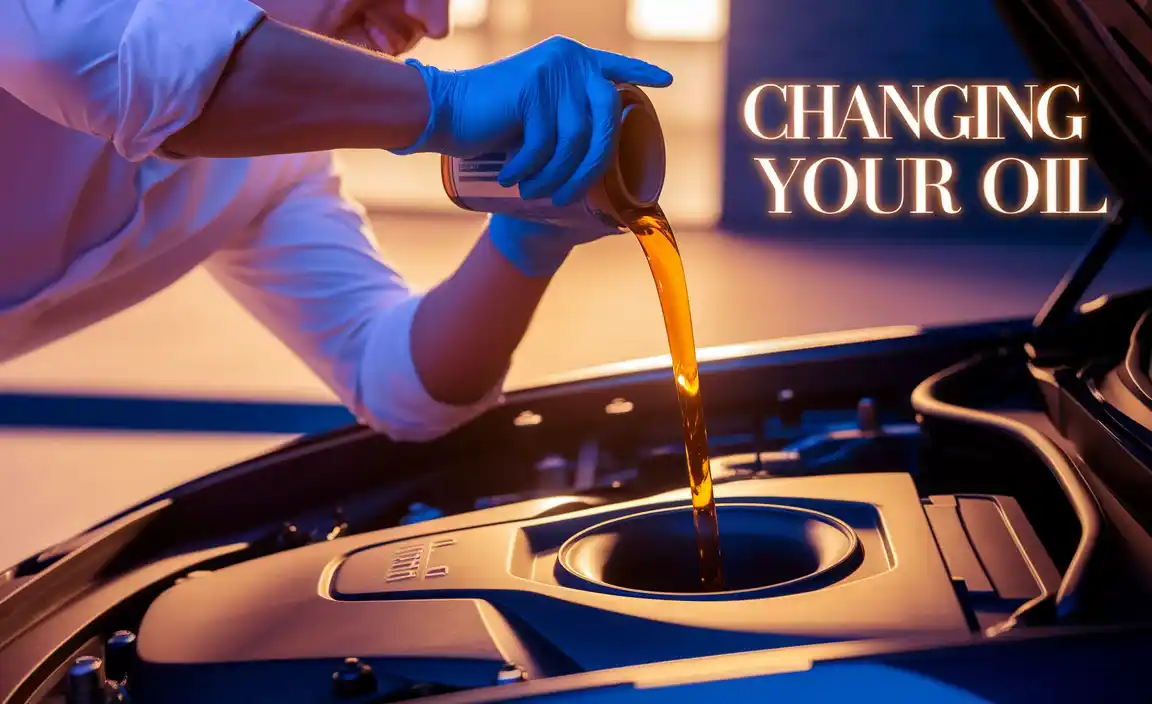Planning an Accra road trip requires smart preparation to ensure a smooth and enjoyable journey. This guide covers everything from budgeting to packing, focusing on comfort and convenience for drivers and passengers, including essential items like travel-friendly personal care for adults and children.
Embarking on a road trip to or around Accra can be an incredibly rewarding adventure. However, the thought of organizing such a journey might seem a bit daunting at first. Will you have everything you need? What if unexpected things happen?
Many travelers feel this way, but don’t worry! With a little smart planning, you can transform any potential stress into exciting anticipation. This guide is designed to break down the essential planning steps into simple, actionable advice, ensuring your Accra road trip is comfortable, safe, and memorable for everyone. We’ll cover everything from making sure your vehicle is road-ready to packing those crucial comfort items.
Your Accra Road Trip Base Guide: Essential Planning
Hitting the open road towards Accra, Ghana, or planning to explore its vibrant surroundings? A well-planned road trip is the key to unlocking its wonders without unnecessary hassle. We’ll walk you through the essential planning stages, turning the complexity into a simple checklist.
1. Defining Your Accra Road Trip Scope
Before you even think about packing, it’s crucial to define what your “Accra road trip” actually looks like. Are you driving to Accra from another country in West Africa? Or are you planning a series of day trips and excursions from Accra to explore nearby areas like the coast, historical sites, or natural parks? The answer to this will dramatically shape your planning.
Consider these questions:
Origin and Destination: Where are you starting from, and what is your primary destination in or around Accra?
Duration: How long will your trip be? A weekend getaway versus a two-week exploration requires different levels of preparation.
Travelers: Who is traveling with you? Solo, with a partner, family with young children, or a group of friends? This affects vehicle choice, comfort needs, and activity planning.
Purpose: Is this a leisurely exploration, a cultural immersion, a business trip with some sightseeing, or a family vacation?
2. Vehicle Preparation: The Foundation of Your Trip
Your vehicle is your mobile base camp. Ensuring it’s in top condition is paramount for safety and reliability. Given the diverse road conditions you might encounter in and around Accra, thorough preparation is non-negotiable.
Essential Vehicle Checks:
Tires: Check tire pressure, tread depth, and for any signs of wear or damage. A spare tire, jack, and lug wrench are essential. Consider carrying a tire repair kit. For more insights on tire maintenance, the National Highway Traffic Safety Administration (NHTSA) offers excellent resources.
Brakes: Ensure your brakes are responsive and in good working order.
Fluids: Check and top up engine oil, coolant, brake fluid, power steering fluid, and windshield washer fluid.
Battery: Test your battery to ensure it can reliably start your vehicle, especially in varying weather conditions.
Lights & Wipers: Verify all lights (headlights, taillights, turn signals, brake lights) are working, and that your wipers are effective.
Air Conditioning/Ventilation: Crucial for comfort, especially in Accra’s warm climate. Ensure it’s functioning optimally.
Documents: Carry all necessary vehicle registration, insurance papers, and your driver’s license.
3. Route Planning and Navigation
While spontaneity is part of the charm of road trips, having a general route plan significantly reduces stress and saves time. Accurately navigating Ghanaian roads, especially if you’re new to the area, requires a good strategy.
Tools for Navigation:
GPS Devices and Apps: Google Maps, Waze, and dedicated GPS units are invaluable. Download offline maps for areas where internet connectivity might be spotty.
Physical Maps: A backup physical map of Ghana can be a lifesaver if technology fails.
Local Advice: If possible, gather tips on common routes and any known road closures or difficult patches from locals or fellow travelers.
Popular Routes & Considerations from Accra:
Accra to Cape Coast/Elmina: A classic route for historical exploration, approximately 3-4 hours. Roads are generally good.
Accra to Ada Foah: Coastal destination, known for water sports and relaxation, about 1.5-2 hours.
Accra to Akosombo Dam/Volta Region: Scenic route towards the Volta River, offering nature and adventure.
4. Accommodation Planning
Your accommodation strategy depends entirely on your travel style and budget. Are you aiming for comfort and convenience, or are you looking for budget-friendly options?
Accommodation Types:
Hotels: Ranging from luxury to mid-range, hotels in Accra and major towns offer reliable comfort and amenities. Booking in advance is recommended, especially during peak seasons.
Guesthouses/Boutique Stays: Often offer a more local feel and personalized service.
Airbnb/Rental Properties: Great for families or longer stays, offering kitchen facilities and more space.
Camping/Eco-Lodges: for the more adventurous, options are available in some rural and coastal areas outside Accra.
Booking Tips:
Location: Choose accommodation that is conveniently located for your planned activities.
Reviews: Always check recent reviews for cleanliness, safety, and service.
Amenities: Confirm essential amenities like Wi-Fi, air conditioning, and parking.
5. Packing Essentials: Comfort and Preparedness for All
Packing smart is about bringing what you need without overpacking. From clothing to personal care items, being prepared ensures a comfortable journey. This includes considering specific needs for all travelers, such as personal care items for adults and children.
Clothing:
Lightweight, breathable clothing (cotton, linen).
Modest clothing for visiting religious sites.
Rain jacket or umbrella, especially during the rainy seasons (April-June, September-November).
Comfortable walking shoes.
Swimwear if you plan to visit beaches or resorts.
Health and Personal Care:
First-Aid Kit: Band-aids, antiseptic wipes, pain relievers, motion sickness medication, any personal prescriptions.
Insect Repellent: Essential for evenings and when visiting rural areas.
Sunscreen and After-Sun Lotion: The Ghanaian sun is strong.
Hand Sanitizer and Wet Wipes: For staying clean on the go.
Personal Hygiene Items: Toothbrush, toothpaste, soap, shampoo, conditioner.
Travel-Friendly Personal Care Solutions: For situations requiring extra comfort and secure protection, consider packing adult diapers or pull-ups. Brands offering discreet, comfortable, and highly absorbent options can provide peace of mind for long drives, unexpected delays, or when bathroom facilities are not readily available. Similarly, for parents traveling with infants or young children, ensuring an adequate supply of child diapers and other sensitive necessities is vital for a stress-free experience. Pack more than you think you’ll need, as running out can be a significant inconvenience.
Documents and Money:
Identification (Passport, National ID)
Driver’s License
Copies of important documents (stored separately or digitally)
Ghanaian Cedis (GHS) – have some cash for smaller vendors and tolls.
Credit/Debit Cards
Electronics:
Phone and charger
Power bank
Car phone mount
Camera (optional)
Universal travel adapter if needed.
Miscellaneous:
Reusable water bottle
Snacks for the road
Small backpack or day bag
Entertainment (books, music, podcasts)
6. Food and Drink Planning
Staying hydrated and energized is key to enjoying your road trip. Planning your food and drink strategy can also help manage costs and cater to specific dietary needs.
On the Road:
Water: Carry plenty of bottled water. Staying hydrated is crucial in Ghana’s heat.
Snacks: Pack non-perishable snacks like granola bars, nuts, dried fruit, and biscuits.
Cooler Bag: If you have space, a cooler bag can keep drinks and some perishable snacks (like fruit or yogurt) cool.
Eating Out:
Accra and other towns offer a fantastic variety of food, from street food to upscale restaurants. Be adventurous and try local delicacies!
When eating street food, opt for vendors with high turnover and visibly clean preparation.
Have local currency (Cedis) ready for smaller eateries and food stalls.
7. Safety and Emergency Preparedness
Road trips inherently carry some risks, and being prepared can make all the difference in an emergency.
Safety Tips:
Drive Defensively: Ghanaian roads can be busy and unpredictable. Be alert and aware of other drivers, pedestrians, and livestock.
Avoid Night Driving: Visibility is often poor at night, and road conditions can be more hazardous. Plan to arrive at your destination before dusk.
Secure Your Vehicle: Always lock your car and avoid leaving valuables in plain sight.
Stay Informed: Keep up with any local travel advisories or news that might affect your route. The U.S. Department of State provides country-specific information for travelers.
Emergency Contacts: Have a list of local emergency numbers readily accessible (e.g., police, ambulance). Consider how you will contact roadside assistance if needed.
Emergency Kit Additions:
Flashlight with extra batteries
Basic tool kit
Jumper cables
First-aid kit (mentioned earlier, but worth reiterating)
Flare or reflective triangle
8. Budgeting for Your Accra Road Trip
A clear budget ensures you can enjoy your trip without financial stress. Factor in all potential expenses.
Key Budget Categories:
Fuel: Estimate mileage and current fuel prices.
Accommodation: Nights booked in hotels, guesthouses, etc.
Food & Drink: Meals, snacks, and beverages.
Activities & Entrance Fees: Visiting attractions, parks, tours.
Contingency Fund: For unexpected expenses (e.g., minor repairs, spontaneous stops).
Tolls and Parking Fees: if applicable.
Tip: Track your expenses as you go to stay within your budget.
Adapting Your Plan for Different Travelers
Your road trip experience will vary based on who is traveling. It’s worth considering these specific needs to enhance comfort and preparation for everyone.
For Families with Children:
Entertainment: Pack books, tablets (with downloaded content), travel games, and coloring supplies to keep kids engaged.
Comfort: Travel pillows, blankets, and their favorite comfort items are essential.
Snacks: Kid-friendly, non-messy snacks are a lifesaver.
Child Diapers and Wipes: As mentioned, a generous supply of child diapers and baby wipes is non-negotiable. Ensure you have a secure place to dispose of them properly.
For Solo Travelers:
Safety First: Share your itinerary with a trusted friend or family member and check in regularly.
Flexibility: Enjoy the freedom to change plans on a whim, but always prioritize safety.
Navigation: Be extra vigilant with navigation and ensure your phone is always charged.
For Travelers Requiring Extra Comfort (e.g., Personal Care Needs):
Discreet Protection: High-absorbency adult diapers and pull-ups can offer security and confidence for long travel days. Look for breathable, odor-controlling materials for maximum comfort. Consider brands known for reliability, like TENA or Depend, available at many pharmacies or online retailers.
Accessibility: Plan your stops around known restroom facilities, but always have your personal care items accessible in your vehicle.
* Hygiene: Pack extra wet wipes and hand sanitizer for easy cleanup.
Embracing the Journey
The Accra road trip experience is about more than just reaching a destination; it’s about the journey itself. By dedicating time to essential planning, you equip yourself with the confidence and comfort needed to embrace every aspect of your adventure. From the meticulous preparation of your vehicle to thoughtfully packing personal care items, every step contributes to a smoother, safer, and more enjoyable experience. So, whether you’re navigating the bustling streets of Accra or exploring the serene landscapes beyond, remember that a little foresight goes a long way.
The open road awaits, and with this essential planning guide, you’re ready to make your Accra road trip one for the books. Enjoy the ride, cherish the discoveries, and create lasting memories. Safe travels!
Frequently Asked Questions
Q1: What is the best time of year for a road trip in and around Accra?
A1: The best time is generally during the dry seasons, from November to March, when there is less rain and more sunshine, making driving more comfortable and outdoor activities more enjoyable.
Q2: Do I need an international driving permit (IDP) for Ghana?
A2: While a valid driver’s license from your country is usually sufficient for short-term visits, it’s highly recommended to also carry an International Driving Permit (IDP). It serves as an official translation of your license and can prevent complications with local authorities.
Q3: What type of currency should I use in Ghana, and where can I get it?
A3: The official currency is the Ghanaian Cedi (GHS). You can exchange major currencies like USD or Euros at forex bureaus and banks in Accra and other major cities. ATMs are also widely available, but it’s wise to have some cash on hand for smaller towns and markets.
Q4: Are roads in Ghana generally safe for road trips?
A4: Roads within Accra and major highways connecting cities are generally paved and well-maintained. However, roads in more rural or remote areas can be in poorer condition, and driving can be challenging due to traffic, pedestrian activity, and occasional potholes. Driving during daylight hours is strongly advised.
Q5: What are some essential personal care items to pack for a road trip in Ghana?
A5: Beyond standard toiletries, pack travel-sized sunscreen, robust insect repellent, hand sanitizer, and wet wipes. If you or a traveling companion require them, discreet and highly absorbent adult diapers or pull-ups, along with child diapers for younger travelers, are crucial for comfort and managing unexpected situations or limited facilities on longer journeys.
Q6: How can I navigate effectively in Ghana, especially if I’m unfamiliar with the area?
A6: Utilize GPS apps like Google Maps or Waze on your smartphone, and remember to download offline maps beforehand as internet connectivity can be inconsistent. A physical map of Ghana is also a useful backup. Asking locals for directions is a common and often effective practice here.
Q7: What should I do if my vehicle breaks down on a road trip?
A7: Firstly, stay calm and ensure your safety by moving the vehicle as far off the road as possible. Turn on hazard lights. If you have a smartphone with service, call for roadside assistance, a trusted mechanic, or emergency services. Keep your emergency contact list readily accessible.




